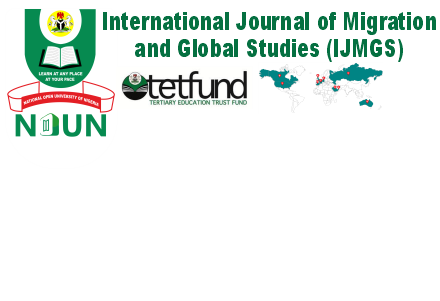This article examined the benefits of women’s migration for work in Nigeria, using primary and secondary data in conjunction with a theoretical framework comprising the Ravenstein theory of migration, the theory of planned behaviour and the theory of social stratification. The primary data were obtained via qualitative observations of the identities and economic activities of women migrant workers at different geographical areas in Nigeria, while the secondary data were derived from a systematic review of the literature such as books, journals, and other relevant documents.
The primary and secondary data obtained for this article were scrutinized and subjected to content analysis. The main findings comprised the following: women’s migration for work in Nigeria occurred in different forms such as rural-rural migration, rural-urban migration, urban-urban migration, urban-rural migration and return migration. Women’s migration for work was beneficial to women migrant workers and different categories of persons in different ways. Women migrant workers did not only achieved some levels of autonomy and empowerment but also contributed to socioeconomic development of their communities. The policymakers in Nigeria should recognise and support the creativities and potentials of women migrant workers to promote the socioeconomic development of the rural and urban areas of Nigeria
